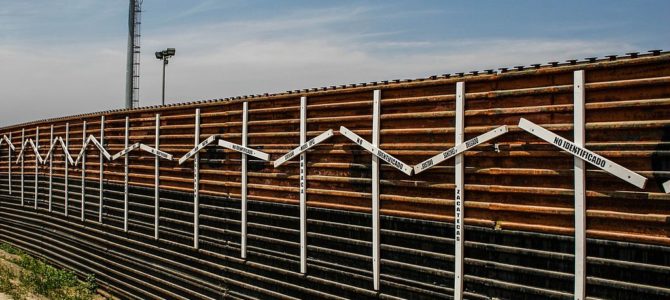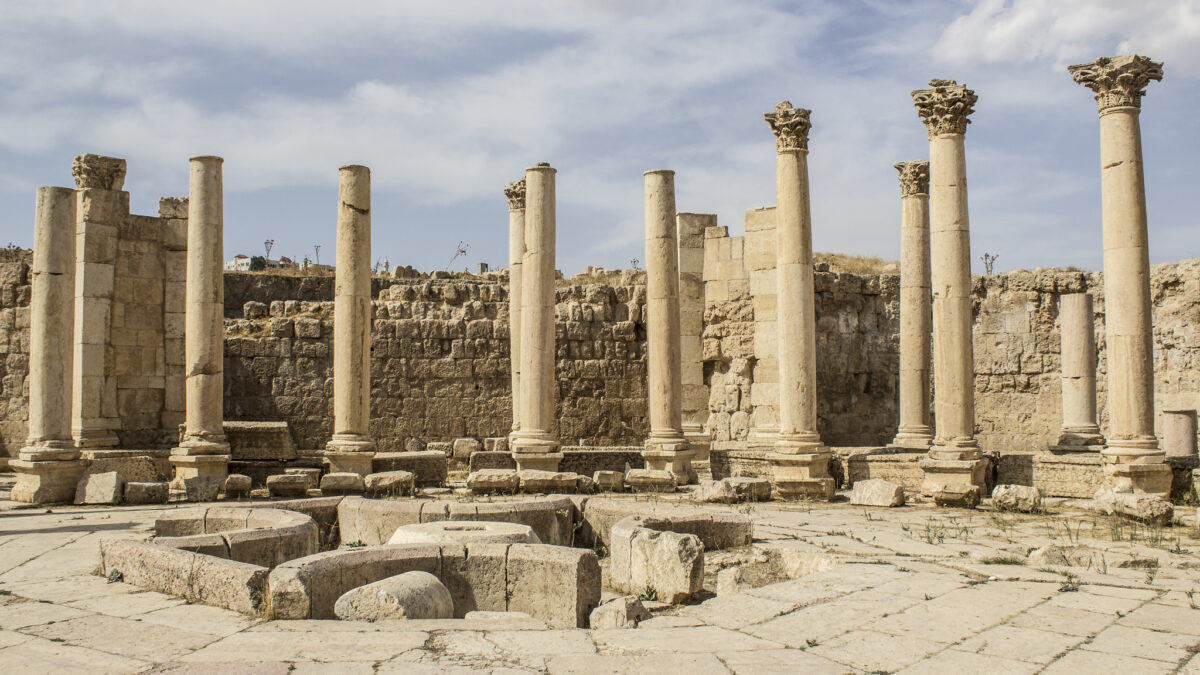
The media has kept national coverage of the border wall deceptively superficial. If we think about the border wall in limited terms, we will only see limited benefits. Some intentionally blind themselves to the benefits in order to downplay the need for border infrastructure. While a wall is a clear deterrent to illegal immigration, it will also protect and improve the lives of millions of Americans in less than obvious ways.
A towering border wall the scale of President Trump’s proposal, spanning the entire southern border, is an enormous undertaking. The cost will also be immense, not only for construction and maintenance, but also affecting business transaction costs around the border. The question remains whether the benefits outweigh the costs.
Using the left’s two-dimensional caricature, the project looks too expensive and ineffective. Media and Democrats cite huge cost estimates and derisively mention tunnels and ladders. The problem is that their costs are not contextualized with positive externalities, and they mischaracterize the wall’s purpose by joking about ladders.
For reasons totally outside of national sovereignty, and truly unrelated to ethic or national identity, the border wall is a net benefit. In addition to the federal government taking a strong stance to reassert the rule of law, a southern border wall would save untold lives, reduce the flow of people and drugs, and protect private property.
1. A Border Wall Will Save Lives
Immigration is caused by pull factors. The relative prosperity of two nations will affect whether people stay or leave. It is clear why people want to come to the freest, most diverse, and most prosperous nation in history. In the United States, individuals are not bound by class systems, and opportunities of all kinds abound.
It is a crime to enter the United States without proper documentation. But as with any crime, the law itself is not the end of the story. An effective deterrent balances the repercussion of violating the law with the probability of getting caught.
With no border infrastructure, the detection rate for illegal crossings would be low. A wall would be a strong deterrent, because many would not be able to get through, and it would give Border Patrol personnel time to locate violators if they did overcome the wall.
By creating an effective deterrent, a border wall minimizes the pull factor of illegal immigration. A child or family is less likely to take a perilous journey just to end up staring up at a 30-foot wall or being turned around by security personnel.
Reversing the incentive for the dangerous attempt at illegal crossing is essential. Great numbers of vulnerable women, children, and families travel thousands of miles every year, through deserts, cartel territories, and the material deprivation of food and shelter for a chance to cross the southern border. As many as 80 percent are reportedly raped during their journey. Families pay smugglers great sums to bring them across Central America and Mexico to the United States. These smugglers may be careless about their customers’ security, reducing them to the status of packages.
Many die or fall ill on the journey. These devastating outcomes don’t happen if people did not attempt the journey in the first place, because they knew there was no chance of crossing the border. If we think only about U.S. citizens, we miss the broader picture. A border wall saves lives by discouraging dangerous migration before it starts.
Importantly, a wall can save lives another way. Those genuinely fleeing violence and oppression may have a valid claim for asylum. Under current law, even legitimate asylum seekers who illegally cross the border are prosecuted for a misdemeanor of illegal entry and temporarily separated from any children they may have during proceedings.
A wall would prevent these people from being able to enter illegally, sparing them the prosecution and separation, while funneling them to ports of entry and U.S. embassies in their home countries, where asylum claims are correctly processed. In this way, a wall works with our laws to promote safety for those who need asylum, while maintaining order.
2. Reduce Illegal Immigration, Smuggling, And Trafficking
Of course, many will be undeterred by a border wall and attempt the journey anyway. When they arrive, they will have to face the 30-foot barrier. If we were only concerned with illegal aliens entering the country and residing among us, the wall would not be fully effective. Tunnels have been documented beneath the border and ladders rise over it.
This is a critical topic about which the media does a disservice to its audience, because we are not only concerned with individual illegal aliens. This persistent rhetoric serves the narrative that the wall is motivated by xenophobia and racism. Instead, the motivation is reducing infiltration by cartels, gangs, drugs, and human trafficking.
Individuals can climb ladders, but it slows them down and limits what they can carry. Vehicles cannot breach the wall, so any truck loaded with weapons, drugs, sex slaves, or worse has to stop, and the smugglers have to climb ladders with only what they can carry. There are two clear benefits of the wall in this instance alone.
First, slowing down violators allows Border Patrol time to arrive at the scene and increases the chance of an apprehension, while limiting the cargo that can be illegally imported. Even if they manage to get past the border, violators will have fewer supplies and less dangerous material. They will also be on foot, giving Border Patrol the advantage in speed and timing.
Second, by preventing vehicles from driving over the border, the environment is spared. The southern border is vulnerable. Federal law protects around 20.7 million acres of land just inside the border as national parks and wilderness area. When smugglers and traffickers enter the country, they do not think about environmental protection. They drive all-terrain vehicles that tear up plant life, disturb drainage, and harm animals. They are also likely to litter and pollute as they go.
Writing off a wall because people can still cross it ignores how people are forced to interact with a barrier. Without considering vehicles and cargo, the media misses critical aspects of border activity. A border wall saves lives by reducing weaponry, drugs, and human trafficking, while protecting the environment from devastating impacts.
3. A Border Wall Will Protect Private Property
Not every aspect of a border wall has to do with immigration. By only addressing immigration and to some extent covering smuggling, the media misses one of the most critical aspects of a wall: Many communities are ravaged by theft and burglary.
In some locations, enterprising criminals run across the border only to grab what they can, including vehicles, and retreat to Mexico. These individuals have no plans to immigrate or even smuggle things into the country. Repeat burglaries affect small towns and vulnerable residents. Texas sheriffs have also reported home burglaries by criminals heading back south.
While typical analysis struggles to conjure crime statistics for immigrants relative to the natural-born population years after entering the country, attention should be paid directly to illegal criminal activity happening instantly upon entry. The wall is useful in both directions for these cases. It severely limits criminal mobility into the United States, and means they have to carry their stolen loot over a ladder on their way back, preventing automotive theft.
One Mexican state bordering the United States is subject to the strictest travel warnings the State Department issues, due to criminal activity and violence. Two Mexican border cities were ranked among the top most dangerous in the world. It is only rational to construct a barrier between dangerous places and safe ones. The wall would reduce the spillover of violence, drugs, and burglary that plague so many along the border.
The Left has made its opposition to the border wall clear, not only through direct commentary, but by what they leave out. Clear benefits of a border wall are being ignored. If these voices prevail and border infrastructure is not adequately addressed, the cost will be human lives, environmental damage, and loss of personal property.









